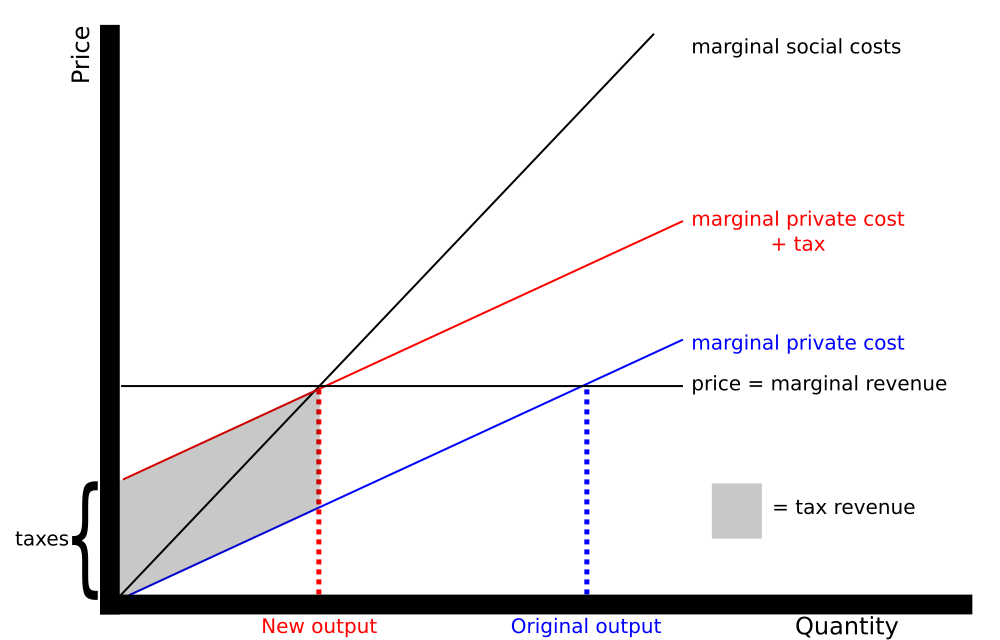Taxation as Environmental Policy
Background: Marinus van Reymerswale, Wikimedia, 1542
The Basic Idea
- A charge based on the amount of something - a substance, an action, etc.
- Charge increases with the amount of the action
The Pigovian Tax
- Arthur Cecil (A.C.) Pigou - Cambridge economist, early 20th century
- 1920: The Economics of Welfare, first major treatment of externalities
- Proposes a tax that would be exactly equal to the social cost of an externality as means of internalization

how it Works:

Wikimedia, 2008
So what does the government need to be able to do to have a Pigovian tax? What would be the consequences of error?
For a Pigovian tax to work, the Scale of the harm must be the same as the scale of the tax.
Why is that?
Examples of Pigovian Taxes
US Gasoline Tax
- 1919: Oregon passes first US gasoline tax
- 1932: First federal gasoline tax
- Alm, et al., Economic Inquiry, 2009: costs of tax tend to be passed on to consumers
- Liddle and Lung, USAEE Working Paper, 2013: governments tend to use gas taxes to raise revenues, not for environmental objectives
- Davis and Kilian, Journal of Applied Economics, 2011: 10-cent increase in tax may decrease CO2 emissions from US vehicles by 1.5%
Background: Guyon, Wikimedia, 2011
Forest Tax Law
- Interest in taxes for forest conservation in early 1900s
- Hibbard, et al., Journal of Forestry, 2003: 16 out of 66 state forest tax law programs in the US required forest management plans
- Illinois Forest Development Act allows forestlands in counties with a population less than 3 million people with a forest management plan can be taxed at 1/6 of its value as cropland
Background: USDA, Wikimedia, 1938
Based on your reading and these examples, what advantages of Pigovian taxes might there be?
ADvantages:
- Allow for different costs of pollution reduction (abatement)
- Continued innovation incentives
- Less chance for regulatory capture
- Revenues!
- Simplicity
What about Disadvantages?
Disadvantages
- Scalar mismatch (geographically varying damages)
- Decentralized firm decisions
- "Dumping" and illegal avoidance
- Regressive tax: heavier proportional burden on poorer people
- Disadvantage in international trade
- Difficulty of monitoring
- High information requirements